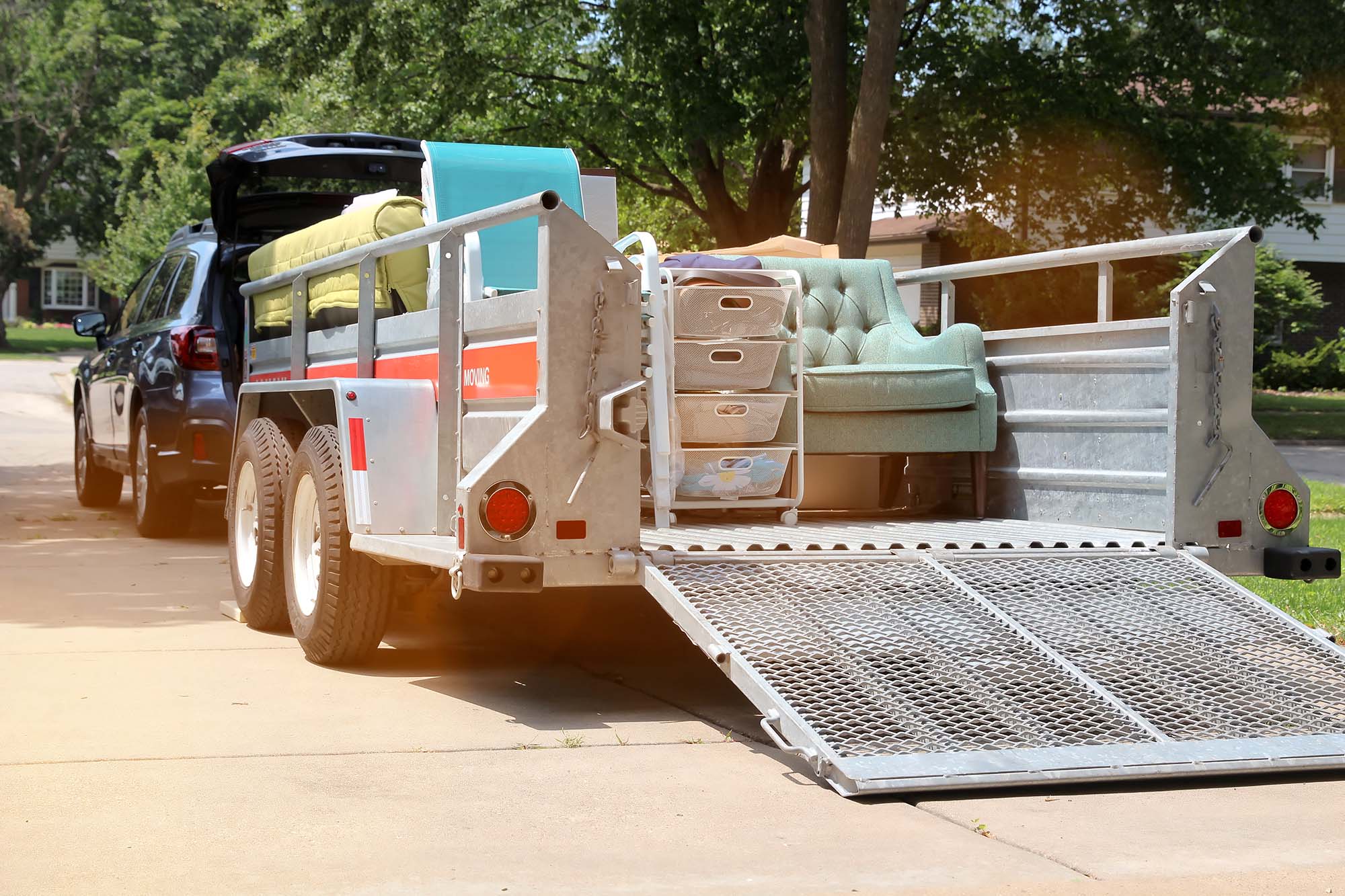What You Need to Know About Renting a Trailer
There's a lot to consider before renting a trailer to haul cargo or gear.
 Shutterstock
Shutterstock
Whether it's moving homes, transporting that latest barn-find vehicle, or hauling big equipment for big jobs, there are plenty of reasons to rent a trailer. Deciding on a trailer type and making sure you're getting the right equipment for the job takes work, not to mention ensuring your vehicle is capable of hauling what you need it to.
Renting a trailer and prepping your vehicle to tow one can feel intimidating, but it doesn't have to.
Choose the Right Trailer for Your Needs
Before you do anything else, determine what kind of trailer will help you get the job done. If you're moving household-type goods, an enclosed cargo trailer may be the best way to go, but it's not a one-size-fits-all proposition. A college student moving into their dorm, for example, can use a smaller trailer like the 4-foot-8 box trailer option offered by many equipment rental companies.
Bigger moves — between houses, for example — will call for larger 5-foot-8 or 6-foot-12 cargo trailers. An open flatbed trailer can accommodate cargo that can get wet if it rains.
Know Your Vehicle's Towing Capabilities
Once you know what kind of trailer you'd like to rent, check to be sure your vehicle can handle the load. Consult your owner's manual for your vehicle's towing capacity. Or, if you don't see it there, look for a sticker or plate inside the driver's door for the information.
Keep in mind that you're not hauling an empty trailer or flatbed. Estimate the weight of your cargo and get the total — often called "gross" — weight of the trailer to see how much power you'll need. Other figures to be aware of include the hitch or tongue weight, which is a measurement of the force the trailer places on the hitch when the trailer is connected. Also consider your travel plans: At altitude, your vehicle can lose a potentially consequential amount of its towing capacity.
If you still feel uncertain after doing the math, equipment rental companies generally ask for the year, make, and model of your vehicle when scheduling a rental online to confirm that it's capable of hauling the trailer you're considering.
Prep Your Vehicle for Towing a Trailer
Once you've figured out which trailer you want to rent, it's time to make sure your car, truck, or SUV is fully prepared to take it on. Get as detailed a set of dimensions for the trailer as you can and make sure you have the right size hitch ball and the right height to connect. For example, U-Haul takes either a 1 7/8 or 2-inch ball and optimal height is between 18 1/2 and 18 3/4 inches measured from the ground to the middle of the hitch ball.
Your hitch and light/signal connections should be in working order and, depending on the state you're in and the weight of the trailer, a brake controller might be needed as well. Some rental services may rent out this equipment; check before signing anything to make sure your bases are covered.
Also consider if a weight-distribution bar can be rented to protect your vehicle's rear end from any damaging effects of hitch weight — if you plan to tow often, buying one might be worth the investment.
Written by humans.
Edited by humans.
 James Tate
James TateJames Tate has been writing about cars professionally for 15 years and he remains obsessed with them. He enjoys digging into the incredible technology of new vehicles as much as he likes the tactility and the driving experience of yesterday’s cars. He has written for a variety of legacy automotive magazines and websites.
Related articles
View more related articles